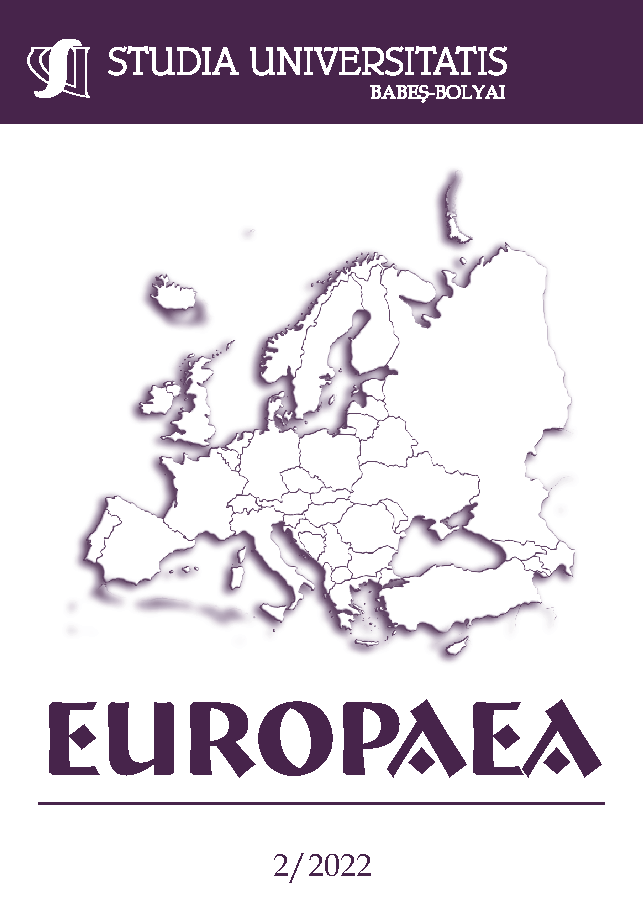A POSTMODERNIST CRITIQUE OF THE INTERNATIONAL COMMUNITY’S RESPONSE TO THE GENOCIDE IN RWANDA: HOW THE UN’S RHETORIC CONTRIBUTED TO HUMANITARIAN FAILURE
DOI:
https://doi.org/10.24193/subbeuropaea.2022.2.04Keywords:
Rwandan Genocide, humanitarian intervention, discourse analysis, United Nations, postmodernism.Abstract
The gruesome savagery displayed during the events in Rwanda astounded the entire world. Even more outrageous is the fact that the international community did not have a strong response to the massacre and allowed millions of lives to be affected by the actions of Akazu. In this essay, I wish to propose that, drawing on the notion that postmodernist international theory's metanarratives can be created inside the framework of international politics, I look at a horrific incident that shocked the public. This study aims to address the issue, Why was the rhetoric of the United Nations potentially fueling the brutality of the Rwandan genocide? to demonstrate that the international community's rhetoric played a significant role in these sad events. All of them point to the fact that the way we classify and prioritise humanitarian situations can be considerably influenced by a international organisation with accepted authority in the international community. We saw the construction of a Rwanda Civil War metanarrative that only showed one side of the conflict before collapsing in the face of the terrible truth of what had actually occurred.
References
Bleiker, Roland (2017), “Postmodernism” in Richard Devetak, Jim George and Sarah Percy (eds.), An Introduction to International Relations, Cambridge: Cambridge University Press.
Caplan, Gerald (2007), “Rwanda: Walking the Road to Genocide” in Allan Thompson (ed), The Media and the Rwanda Genocide, London: Pluto Press.
Chaon, Anne (2007), ”Who Failed in Rwanda, Journalist or the Media?” in Allan Thompson (ed), The Media and the Rwanda Genocide, London: Pluto Press.
Clarke Walter; Herbst, Jeffrey (1996), “Somalia and the Future of Humanitarian Intervention”, Foreign Affairs, 75(2), 70-85.
Dallaire, Romeo (2005), “Shake Hands with the Devil: The Failure of Humanity in Rwanda”, New York: Carroll & Graf Publishers.
Devetak, Richard (2005), „Postmodernism” in Scott Burchill et al., „Theories of International Relations”, New York: Palgrave Macmillan.
Doctors Without Borders (2019), “Remembering the Rwandan genocide 25 years on”, News&Stories, 12 April 2019, https://www.doctorswithoutborders.org/latest/remembering-rwandan-genocide-25-years.
Genocide Archive of Rwanda (1994), “Transcripts from the UN International Criminal Tribunal for Rwanda archives”, https://genocidearchiverwanda.org.rw/index.php/Radio_T%C3%A9l%C3%A9vision_Libre_des_Mille_Collines
Herţa, Laura-Maria (2013), “Jus in Bello and the Solidarist Case for Humanitarian Intervention. From Theory to Practice”, Studia Europaea, 58(1), 5-48.
Lyotard, Jean-Francois (1979), The Postmodern Condition: A Report on Knowledge, Minneapolis: University of Minnesota Press.
Mamdani, Mahmood (2002), When Victims Become Killers: Colonialism, Nativism, and the Genocide in Rwanda, Oxford: Princeton University Press.
Neal, Andrew W. (2009), “Michel Foucalt”, in Jenny Edkins and Nick Vaughan-Williams (eds.), Critical Theorists and International Relations, Oxford: Routledge.
Pantea, Ana (2013), “The Moral Dimension of Humanitarian Intervention. The Dialect of Justification”, Studia Europaea, 58(1) no. 1, 49-62.
Reyntjens, Filip (1996), „Rwanda: Genocide and Beyond”, Journal of Refugee Studies, 9(3), 245-248.
United Nations Peacekeeping (2001), “Rwanda – UNAMIR Mandate”, Completed Peacekeeping Operations, https://peacekeeping.un.org/sites/default/files/past/unamir.htm.
Wheeler, Nicholas J. (2002), Saving Strangers. Humanitarian Intervention in International Society, Oxford: Oxford University Press.
Zehfuss, Maja (2009), „Jacques Derrida” in Jenny Edkins and Nick Vaughan Williams (eds.), „Critical Theorists and International Relations”, Oxford: Routledge.
Downloads
Published
How to Cite
Issue
Section
License
Copyright (c) 2022 Studia Universitatis Babeș-Bolyai Europaea

This work is licensed under a Creative Commons Attribution-NonCommercial-NoDerivatives 4.0 International License.



